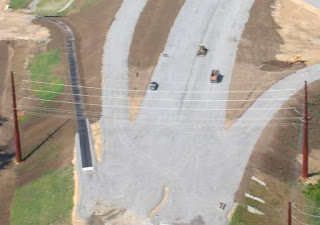It has been my experience with cell towers that the sides polarize so quickly that no one is left to negotiate the middle ground. I see many similarities in the Northern Pass debate. That is not to say those against the project need to give in, but what happens if, in spite of their best efforts, the project still moves forward? Making this simply a win or lose proposition is not in the best interest of the state. Someone needs to occupy the middle ground to make sure the best interests of the citizens and their communities are kept in mind regardless of the ultimate outcome.
As reported in a previous blog, New Hampshire electrical rates are the third highest in the country behind only New York and Hawaii. If the project goes through, there should be some stipulation that New Hampshire electrical rates are indexed to the average rate in New England in some manner. As PSNH is not the only electrical company servicing New Hampshire, this will take some legalese, but given the money wasted on ill advised ad campaigns, this is a modest investment.
Easement rights should be defined. Utility easements are significant off-road travel corridors for hiking, horseback riding, ATV, cross country skiing, and snow mobiling. The public access to these corridors should be well defined and methodologies for maintaining these corridors need to be defined and discussed to the benefit of the communities and protection of the environment.
Co-location rights need to be defined. If Northern Pass moves forward, it should be developed as a central highway for multiple utilities. It is likely that having an established trunkline for energy transmission could also inspire a number of wind project developments. If this was a significant roadway, we would be discussing the secondary growth that will be promoted by the new road. Should there be a master plan for northern New Hampshire wind development? That would be speculative and probably overkill, but we should, as a minimum, establish some defined development protocols so that the smaller communities are prepared for any resulting projects.
What is the appropriate mitigation for view sheds, land values, and secondary impacts within a town? Should there be local quotas for labor during construction? Should part of the revenue of the project be dedicated to conservation projects, community development, or other local programs?
According to the Natural Resources Defense Council, New Hampshire ranks in the top twenty worst states for emissions from power plants. The top three leading plants for toxic emissions are owned by PSNH including the Merrimack Station in Bow, Schiller Station in Portsmouth, and the Newington Station in Newington. If Northern Pass is going to go through with impacts to northern New Hampshire, is it reasonable to consider using some of this new energy to offset the shutdown of some of these existing plants?
There is a need for a statewide energy master plan to include Northern Pass's effects, Seabrook Nuclear Station, other existing plants, and future plants including renewable energy sources. This would allow a broader discussion of our energy future across the state. Since electrical transmission is a regional commodity, not typically reviewed at the state level, the idea of a statewide master plan is discarded as an uninformed suggestion. This is the easy way out of true leadership at the statewide level. It is the only political division that can properly address this issue to the satisfaction of its citizens.
I would also like to see from the environmental community better definition of their priorities. Again, simply opposing a project is a dangerous position. We need to better define the items that are absolute deal breakers and those areas where mitigative measures could make the project more palatable. Better defining what is at stake environmentally may even strengthen the opposition to the Northern Pass.
We are so focused on whether the Northern Pass will be allowed that we are assuring that if it does go through only one side will be happy. Having someone looking at the middle ground is not admitting defeat, it simply ensures that even if the project moves forward there will be benefits for all parties.

No comments:
Post a Comment